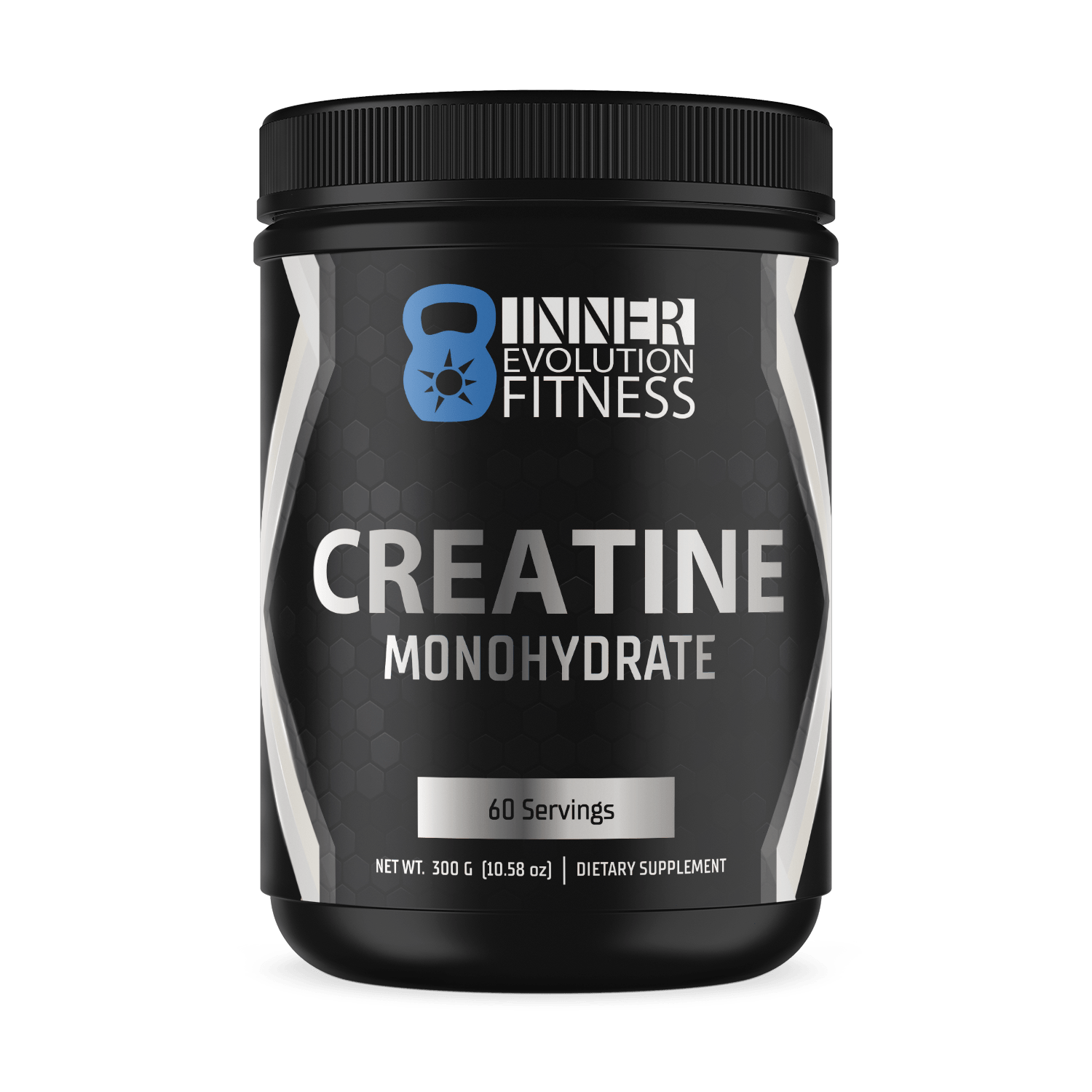Unlocking the Power of Creatine
Benefits, Myths, and Optimal Use for Peak Performance
Author: Mark Foley founder of Inner Evolution Fitness
Explore the benefits, types, and proper usage of creatine supplements for enhanced performance and weight loss.
Understanding Creatine: Nature and Function
Creatine is a naturally occurring compound that plays a vital role in energy production within the body, primarily facilitating the regeneration of adenosine triphosphate (ATP) in muscle and brain tissues. It is synthesized in the liver, kidneys, and pancreas from amino acids, specifically glycine and arginine. While the body produces creatine, it is also obtained through dietary sources, most notably from protein-rich foods like red meat and seafood. Individuals who follow vegetarian or vegan diets may have lower levels of creatine, making supplementation particularly beneficial for them.
Supplementation can significantly enhance muscle creatine stores by 10-40%, leading to improved performance in high-intensity exercises and activities. Studies have shown that creatine supplementation can increase muscle mass and strength, especially in younger athletes who engage in resistance training. For example, a group of college athletes supplementing with creatine experienced notable gains in muscle strength and size compared to a control group, showcasing the effectiveness of this supplement in enhancing physical performance.
Benefits of Supplementation
The benefits of creatine supplementation extend beyond mere muscle gain. One of the most significant advantages is its capacity to improve strength and power output during high-intensity training sessions. Research indicates that athletes utilizing creatine can experience enhanced performance, particularly in short-duration, high-effort activities like sprinting and weightlifting. For instance, a study involving sprinters revealed that those who supplemented with creatine improved their sprint times, demonstrating the compound’s efficacy in boosting athletic performance.
Additionally, creatine has been associated with improved recovery post-exercise. It helps reduce muscle cell damage and inflammation, allowing athletes to bounce back quicker between training sessions. Beyond physical performance, creatine may also have neuroprotective effects, potentially benefiting cognitive function and conditions such as Alzheimer’s disease. This comprehensive range of benefits makes creatine a popular choice among athletes and fitness enthusiasts alike.
Weight Loss
While creatine is often marketed for muscle gain, it can also play a role in weight loss. Research suggests that creatine supplementation may enhance body composition by promoting an increase in lean muscle mass while simultaneously reducing fat mass. This is particularly important since muscle tissue burns more calories at rest compared to fat tissue, thereby aiding in weight loss goals.
Moreover, the increased strength and endurance that come from creatine use can lead to a higher calorie burn during workouts. For example, individuals who incorporate creatine into their training regimen often find they can push harder and longer, thus increasing overall energy expenditure. This is a critical factor for anyone looking to lose weight effectively, as enhanced workout intensity can significantly impact fat loss.
 Types of Creatine Supplements
Types of Creatine Supplements
Creatine supplements come in various forms, each with distinct properties. Creatine monohydrate remains the most studied and widely used form, known for its effectiveness and affordability. Other types, such as creatine ethyl ester and buffered creatine, are often marketed for their purported advantages, such as quicker absorption and reduced gastrointestinal discomfort. However, research indicates that these alternative forms may not provide benefits superior to creatine monohydrate.
Micronized creatine, which features smaller particles for better solubility, is another option available on the market. Despite the variety of forms, creatine monohydrate is still considered the gold standard due to its extensive research backing and proven results in enhancing muscle performance and recovery. Therefore, individuals looking for the most effective creatine supplement should consider sticking with monohydrate for optimal results.

Proper Dosage and Timing
A maintenance dose of around 5 grams per day is generally recommended. Consistent daily intake is essential, as it helps maintain elevated creatine levels in the muscles, maximizing the benefits over time.
In terms of timing, creatine can be taken at any time of day; however, mixing it with carbohydrates, such as fruit juice, may enhance the insulin response and improve creatine uptake into the muscles. This strategic approach to supplementation can further enhance its efficacy, particularly for athletes looking to maximize their training results.
Potential Side Effects and Precautions
While creatine supplementation is generally considered safe for most individuals, it is essential to be aware of potential side effects. Dehydration can occur, especially during intense exercise, so it is vital to maintain adequate hydration levels while using creatine. Some users may also experience gastrointestinal issues, particularly if they take creatine on an empty stomach or exceed recommended dosages.
Moreover, individuals with pre-existing kidney conditions should consult a healthcare professional before starting creatine supplementation, as monitoring kidney function may be advisable. Overall, most healthy individuals tolerate creatine well, but being mindful of hydration and dosage can help mitigate any adverse effects.
 Debunking Common Myths About Creatine
Debunking Common Myths About Creatine
There are several misconceptions surrounding creatine, which can cloud its reputation in sports nutrition. One prevalent myth is that creatine causes significant weight gain due to fat accumulation. In reality, any weight gain experienced is primarily attributed to increased water retention in muscles rather than fat gain.
Another common belief is that creatine is only beneficial for bodybuilders; however, athletes across various sports can experience performance improvements from its use. Additionally, it is a misconception that creatine must be cycled to maintain its effectiveness. Continuous use does not diminish its benefits, making it a practical supplement for those committed to their fitness journey. Understanding these myths can help individuals make informed decisions about incorporating creatine into their training regimens.

About Mark Foley:
Owner of Inner Evolution Fitness
Few personal trainers like Mark Foley know how to help others achieve health goals. As a trainer for over 1,000 clients, Mark has helped clients lose over 60 lbs., eliminate joint pain, race Ironmans, and, most importantly, become healthy. He will help you create a blueprint for the life you want to live and guide you along the way. Now, he’s ready to teach you.



